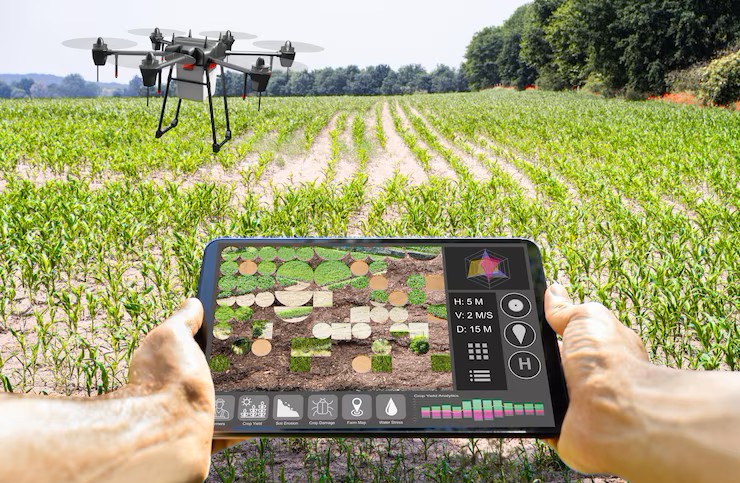Agriculture in Europe is undergoing a technological revolution, with the Internet of Things (IoT) playing a crucial role in improving efficiency, productivity, and sustainability. IoT devices, such as smart sensors, automated irrigation systems, and AI-powered data analytics, are helping European farmers optimize resources, reduce waste, and boost yields. As South Africa (SA) faces its own agricultural challenges, there are valuable lessons to be learned from Europe’s approach to smart farming.
How IoT is Transforming European Farming
European farmers are integrating IoT into their daily operations in various ways:
- Smart Irrigation Systems: IoT-enabled sensors monitor soil moisture levels in real time, ensuring water is used efficiently and only when necessary. This reduces water waste and lowers costs.
- Precision Agriculture: GPS-equipped tractors and drones collect data on soil health, crop conditions, and weather patterns. This allows farmers to apply fertilizers and pesticides only where needed, minimizing environmental impact.
- Automated Livestock Monitoring: Wearable IoT devices track the health and movement of livestock, alerting farmers to potential diseases or abnormal behavior. This improves animal welfare and reduces veterinary costs.
- Supply Chain Optimization: IoT-based tracking systems ensure fresh produce is transported under optimal conditions, reducing food spoilage and improving market efficiency.
- Climate Adaptation: Smart weather stations provide real-time forecasts, helping farmers make informed decisions on planting and harvesting to mitigate climate risks.
What South Africa Can Learn from Europe’s IoT Farming Innovations
South Africa faces several agricultural challenges, including water scarcity, climate change, and fluctuating crop yields. By adopting IoT-driven solutions, SA farmers can enhance productivity and sustainability. Here’s how:
- Water Management: With increasing droughts, IoT-based irrigation can help SA farmers use water more efficiently, reducing waste and improving crop resilience.
- Precision Farming for Small-Scale Farmers: IoT tools adapted for smallholder farmers can help them make data-driven decisions without requiring large-scale infrastructure.
- Early Disease Detection: Livestock tracking technology can help SA’s cattle and poultry farmers prevent disease outbreaks, reducing losses and improving food security.
- Government and Private Sector Support: Investment in IoT infrastructure, subsidies for smart farming equipment, and digital training programs can accelerate the adoption of IoT in SA’s agricultural sector.
The Future of Smart Farming in South Africa
While IoT adoption in SA is still in its early stages, the success of European smart farming provides a clear roadmap. By leveraging IoT solutions, South African farmers can increase yields, conserve resources, and build a more resilient agricultural sector. With the right support and investment, IoT could be the key to securing SA’s food future in an increasingly unpredictable climate.
Join 'Farmers Mag' WhatsApp Channel
Get the latest Farming news and tips delivered straight to your WhatsApp
CLICK HERE TO JOIN






